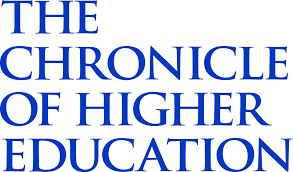Here’s How Science Funding Could Change Under Trump

Read the full article in The Chronicle of Higher Education.
President Trump once again oversees billions of dollars of funding for research into pandemics, HIV, cancer, and other fundamental areas of health and science. And once again, his administration seems determined to shake up how that money is doled out.
Federal science agencies, from the Department of Energy to the National Science Foundation, fund research across the country. So far, the agency that the Trump administration has most clearly signaled as a target for changes is the National Institutes of Health, which funnels some $40 billion to 300,000 scientists at 2,500 universities and other research institutions. Trump has nominated the former presidential candidate Robert F. Kennedy Jr. to lead the Department of Health and Human Services, the NIH’s parent agency, and Jay Bhattacharya, a professor of medicine and health policy at Stanford University, to run the NIH.
Public remarks and news reports about their possible plans, as well as other ideas being pushed by influential conservatives, indicate that their leadership would mark a departure from mainstream medical thinking and from the way the agencies have traditionally operated. Kennedy, who over the years has expressed skepticism of vaccines and repeatedly claimed they are linked to autism, has said he’d tell NIH employees to “give infectious disease a break for about eight years.” Bhattacharya, who has said that he was unfairly criticized for condemning lockdowns during the Covid-19 pandemic, is reportedly considering tying universities’ funding to their free-speech climates.
That and other proposed changes to the way funding is administered — such as divvying up the NIH’s grant budget among states — have raised concern among science-policy experts. But there is bipartisan support for other possible changes, like strengthening research reproducibility and overhauling peer review.
Which reforms come to fruition remains to be seen. Kennedy’s first Senate committee hearings will take place by the end of the month, but Bhattacharya’s had not been scheduled as of Thursday. (Neither returned requests for comment.) When Trump repeatedly tried to slash funding to science agencies during his first term, Congress blocked his attempts, and all those agencies’ budgets ultimately grew. Kennedy has talked about firing and replacing 600 NIH employees, and Trump has restored an executive order from his first term that makes it easier to fire federal workers, but that is expected to be challenged in court.
Already, though, many scientists are nervous. This week, the Trump administration directed federal health agencies to pause external communications, including scientific reports and health advisories, through February 1, according to CNN. Meetings of experts to review NIH grant applications — a crucial stage of the funding process — were also paused, according to the health and science news site Stat. (An NIH spokesperson told Stat: “HHS has issued a pause on mass communications and public appearances that are not directly related to emergencies or critical to preserving health. This is a short pause to allow the new team to set up a process for review and prioritization. There are exceptions for announcements that HHS divisions believe are mission critical, but they will be made on a case-by-case basis.”)
Predicting how scientific research will be affected by Trump’s policies is “incredibly difficult,” said David H. Guston, associate vice provost for discovery, engagement, and outcomes at Arizona State University’s Julie Ann Wrigley Global Futures Laboratory. “Fundamental research has been a place of long-duration, bipartisan commitment in the United States. But Trump in his previous term, and in preparation for this term, has really scrambled other kinds of bipartisan commitments,” such as NATO, Guston noted. “And there’s no reason to believe why he might not scramble this one.”
Scientific Fields Under the Microscope
Under Trump’s administration, investment in scientific fields could fall along politicized lines. In an op-ed for The Wall Street Journal, Kennedy declared that he wanted to “devote half of research budgets from the NIH toward preventive, alternative and holistic approaches to health.” Currently, he wrote, “researchers don’t have enough incentive to study generic drugs and root-cause therapies that look at things like diet.”
Some of that message resonates with Mary Woolley, president of Research!America, a nonprofit that represents universities and other health-research institutions. “I and many people would like to see more emphasis on prevention in particular — it’s a no-brainer,” she said. “It’s more cost-effective, it saves more lives. Of course we should do everything we can to find ways to prevent the scourges of our time and those that might come next.”
But Kennedy has also expressed deep skepticism of certain tools proven to prevent diseases — like vaccines and water fluoridation. Before running for president, he was chair of Children’s Health Defense, a group that has campaigned against both public-health programs. He has been blamed for playing a role in a deadly 2019 measles outbreak in Samoa, where he’d met with anti-vaccine activists. (“I never told anybody not to vaccinate,” Kennedy has said.) Shortly after the Covid-19 vaccines were rolled out, he petitioned the Food and Drug Administration to revoke their authorization. (More recently, Kennedy has told reporters that he wouldn’t “take away anybody’s vaccines” and rejected the idea that he’s “anti-vaccine,” and reportedly claimed he’s “all for” polio immunizations.)
In the fall, Kennedy accused the FDA of “aggressive suppression” of “psychedelics, peptides, stem cells, raw milk, hyperbaric therapies, chelating compounds, ivermectin, hydroxychloroquine, vitamins, clean foods, sunshine, exercise, nutraceuticals and anything else that advances human health and can’t be patented by Pharma.”
“Some of the most difficult and dangerous stuff comes with the dog’s breakfast of ideas that HHS nominee Kennedy has been circulating,” Guston said. Woolley added that investing in preventing diseases shouldn’t come at the expense of curing and treating them. “We’re very strong proponents of ‘both and,’ not ‘either or,’” she said.
……




